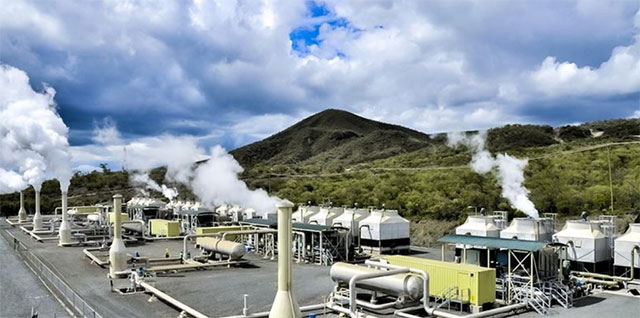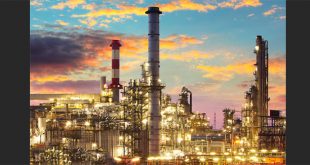
U.S. energy policy changes aimed at revitalizing energy projects and achieving energy dominance are boosting emerging natural gas hubs in Africa, as initiatives like Mozambique’s stalled natural gas project attract substantial investment.
SPECIAL REPORT | BIRD AGENCY | US President, Donald Trump’s series of rollbacks on restrictions to the country’s natural gas valves is creating new investment opportunities that are spurring Africa’s gas sector.
In early March, Trump issued a series of energy executive orders that resulted in the end of the pause on Liquefied Natural Gas (LNG) projects and approval of the first LNG project since the Biden Administration imposed a ban on such projects in 2024.
Trump also established the National Energy Dominance Council to maximize the utilization of America’s extensive energy resources.
Trump’s, ‘drill baby, drill agenda’ is now seen unlocking real opportunities for natural gas-producing African countries as Africa-US energy Investments forums geared to encourage US companies to back key African projects begin to take shape.
One such forum is the U.S.-Africa Energy Forum (USAEF) slated for early August 2025 in Houston, Texas with organisers saying it will offer a platform for fostering U.S.-Africa energy investment, offering direct access to key markets and project opportunities across the continent.
USAEF has also announced a strategic partnership with the African Energy Chamber (AEC) giving leverage to U.S. investors to gain critical market insights and establish meaningful connections at another forum, Africa Energy Week (AEW) in Cape Town on September 29-October 3, 2025.
African Energy Chamber, Executive Chairman, NJ Ayuk said in a joint statement that Africa’s energy sector is primed for investment.
“This partnership will help drive capital flows into Africa’s energy sector, supporting not only economic growth but also energy access and sustainable development,” said Ayuk.
These forums will curate investor roundtables, private equity sessions and ministerial discussions to position U.S. companies at the forefront of Africa’s energy growth.
“Africa presents an unparalleled opportunity for American investors seeking access to high-growth energy markets. This partnership creates a seamless bridge from Houston to Cape Town, enabling U.S. stakeholders to engage in substantive dealmaking at AEW,” said Energy Capital & Power Chief Executive Officer, James Chester.
Africa’s emerging markets such as Mozambique, Senegal, Mauritania and Tanzania are all seeking more upstream funding after major offshore discoveries.
“Established natural gas producers and emerging ones, with considerable gas resources have plans for gas network expansion to stimulate local natural gas use, despite the significant export orientation of the projects,” according to the Latest Global Gas Outlook report by The Gas Exporting Countries Forum (GECF).
The U.S. Export-Import Bank in mid-March approved a US$4.7 billion loan for a long-delayed major LNG project in Mozambique.
France’s energy giant, TotalEnergies, had put the US$20 billion Mozambique LNG project on hold and declared force majeure in April 2021 due to insurgent attacks that took place near the construction camp.
Despite being the majority shareholder with a 26.6% stake in the project, TotalEnergies was unable to secure approval from the Biden administration to access the massive funding granted during Trump’s first term in 2020 for its activities in Mozambique. The recent loan approval brings new hope for the project’s revival.
Other major LNG developments in Mozambique include ExxonMobil’s US$25 billion investment in the Rovuma LNG initiative and Eni’s Coral Sul expansion with the Coral North project.
Tanzania, which is making a significant push for clean cooking, plans to launch a historic licensing round for dozens of oil and gas exploration blocks in May.
After a 10-year hiatus, the country aims to strategically market its projects during the Africa Energies Summit in London, which will take place from May 13th to 15th.
The East African economy, estimated to hold 57 trillion cubic feet of natural gas reserves, has plans for a US$42 billion liquefied natural gas facility- to be developed by a consortium that includes Shell Plc, Equinor ASA, and Exxon Mobil Corp.
In January, Senegal and Mauritania announced a collaboration on shared gas production at the Greater Tortue Ahmeyim (GTA) offshore natural gas field, which is located along their borders.
The project aims to produce approximately 2.5 million tonnes of liquefied natural gas annually.
Africa’s mature oil-producing countries are also not left behind—Angola, Libya, Egypt, and Nigeria— and have or are planning to launch licensing rounds to attract new exploration investments.
In March Libya announced offering 22 blocks for its first upstream oil and gas exploration and development, after 18 years. Algeria has floated a bid for six onshore blocks, Egypt 12 exploration blocks and Angola plans to offer 10 offshore blocks in 2025.
The Global Gas Outlook report shows natural gas demand in Africa growing at a rate of 3.3% annually to 2050, driven by ‘strong economic expansion, continued industrialisation and rapidly rising urban population- all accelerating increase in electricity needs.’
Natural gas, according to thereport, is forecast to cover more than 45% of the total growth of Africa electricity requirements, while its share in the regional power generation mix is forecast to rise from 40% in 2022 to 44% in 2050.
“Egypt, Nigeria as well as countries in Western and Southern Africa are to be the largest contributors of this trend, given intentions to expand their gas-fired fleet,” said authors of the report.
*****
SOURCE: bird story agency
 The Independent Uganda: You get the Truth we Pay the Price
The Independent Uganda: You get the Truth we Pay the Price



